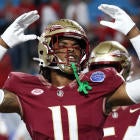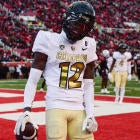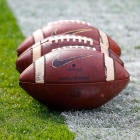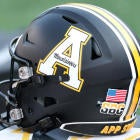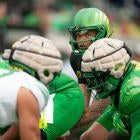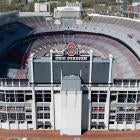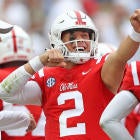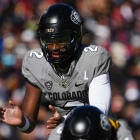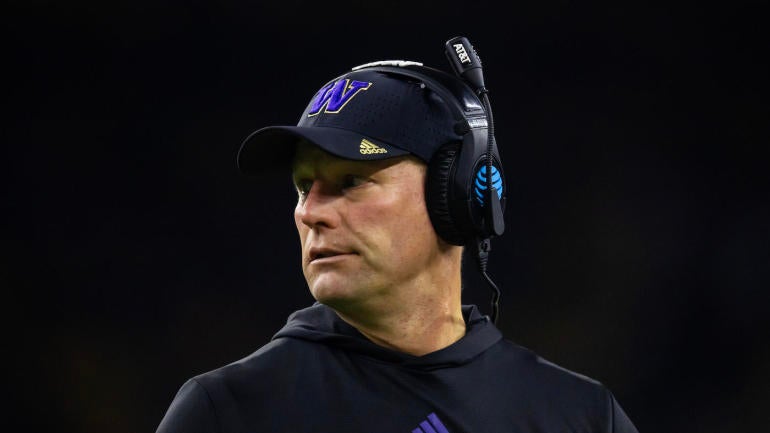
Few coaches have redefined their sports quite like Nick Saban at Alabama. Since winning his first of six national championships with the Crimson Tide in 2009, nearly every peer program has tried to emulate Saban and capture a taste of the magic. But with Washington's Kalen DeBoer following Saban who is retiring, Alabama is moving away from the formula it popularized across an entire region.
When Georgia replaced Mark Richt, the Bulldogs turned to Nick Saban's right-hand man, Kirby Smart, to replicate some of the magic. When Tennessee went through a mess of a search, Saban's defensive coordinator Jeremy Pruitt came through. So did Saban assistants Steve Sarkisian at Texas, Lane Kiffin at Ole Miss and consecutive Saban assistants Will Muschamp and Jim McElwain at Florida. In fact, nine of the 68 coaches in power-conference football are members of the Saban coaching tree. Eight other former Saban assistants have been power-conference coaches.
But when it was time to fill the biggest shoes in college football, Alabama instead decided to find a new path.
DeBoer will arrive to the biggest job in college football without any experience coaching in the SEC. Previously, the Southeasternmost program he ever led was in Sioux Falls, South Dakota. His 2024 recruiting class at Washington featured three recruits from Texas, but none from the South. As a coach and assistant combined, DeBoer has just three years in the power conferences.
But DeBoer has a mantra that has followed him from his time at Sioux Falls, where it was first popularized by legendary coach Bob Young: "Winners win, because that's what winners do." In hiring DeBoer, Alabama athletic director Greg Byrne is betting big that winning supersedes geography.
DeBoer truly worked his way from the bottom, starting his career by leading then-NAIA Sioux Falls at 31 years old. He rewrote the record books, leading the Cougars to a 67-3 record with three national championships in four years. After stops at Southern Illinois, Eastern Michigan and Fresno State as a coordinator, he became a name to know by developing quarterback Michael Penix Jr., with whom he later reconnected at Washington, into a star at Indiana in 2019.
DeBoer took the Fresno State job but was quickly hired away by Washington two years later. The only constant has been success. In nine years at every level, DeBoer is a cool 104-12. At Washington, the Huskies are 25-3. The No. 2 finish in the final AP Top 25 matched the best result in program history, tying the 1991 national championship squad.
While DeBoer has done a solid job acquiring talent at Washington after the disastrous Jimmy Lake years, his real superpower is flexibility. His offenses shifted to match personnel, from using a downfield passing attack with Penix to attacking the running game with Darius Jackson and Shaq Vann at Eastern Michigan. Quarterback Jalen Milroe, a top-10 Heisman vote-getter, will be a fascinating next protégé. Alabama can count on DeBoer staying on the cutting edge of college football.
Additionally, DeBoer has surpassed even Saban's standards of player development. The Crimson Tide boasted the No. 1 247Sports Team Talent Composite roster of all time. Washington sat at No. 26. And yet, Washington has four players ranked in the top 50 of the CBS Sports NFL Draft Prospect Rankings. For all the recruiting success, Alabama has three.
Player retention and development took center stage during the 2023 College Football Playoff. Michigan and Washington ranked among the most experienced teams in the country. Texas brought back numerous defensive contributors that shaped a national contender. All three teams finished ahead of the Tide in the final CFP Rankings. If Alabama can retain the bulk of its roster in 2024, DeBoer will take over with an embarrassment of riches.
Granted, replacing a legend doesn't have the greatest hit rate. Ray Perkins took over for Paul "Bear" Bryant in 1983 and posted the first losing season in 26 years one year later. Steve Spurrier won 10 games in eight of his final nine seasons at Florida, but Ron Zook never reached the mark.
History is also littered with coaches who moved out of their preferred region and failed. Famously, Bryan Harsin went from Boise State to flaming out at Auburn after 21 games. Ex-Louisville coach Charlie Strong never quite understood the dynamics of coaching at Texas and never had a winning season in three tries.
But while DeBoer also heads into unfamiliar territory, it's easy to see how Saban can see some of himself in DeBoer. Saban spent most of his career in the Midwest at Toledo and Michigan State before landing at LSU in 2000. Saban quickly revolutionized the recruiting industry and managed his newfound advantages with the Tigers to build a powerhouse. And it's worth noting another relatively small-name coach – Oklahoma State's Les Miles – took over LSU when Saban left. Three years later, he won a national championship and played for another in 2011.
To be clear, DeBoer has to adjust to his new digs. Recruiting in the SEC is a 24/7/365 job. While he has a laundry list of people who have traveled with him from NAIA to the College Football Playoff, joining the SEC means swinging for the fences for assistants. He must fill his staff with folks who know the region and can give him advice, in addition to longtime confidants.
At the same time, DeBoer is a winner. He's won every player he's coached, from Sioux Falls to Bloomington and Seattle. He's adjusted everywhere he has been. If he can evolve to the hyper-competitive SEC and is humble enough to take advice from the greatest coach in college football history, DeBoer can be a perfect fit.














